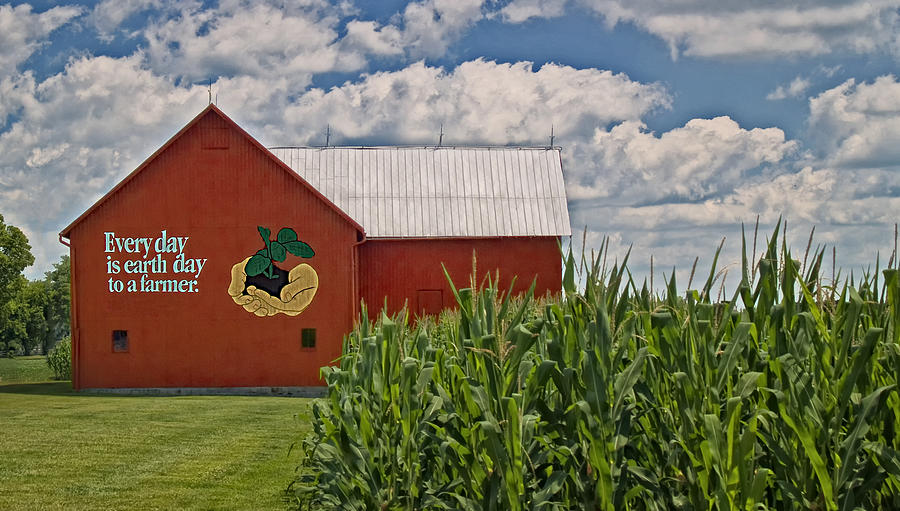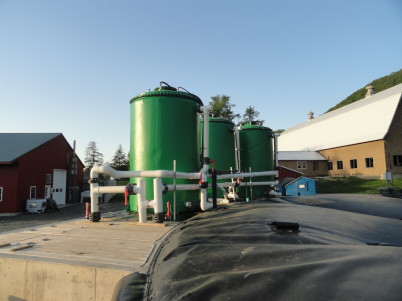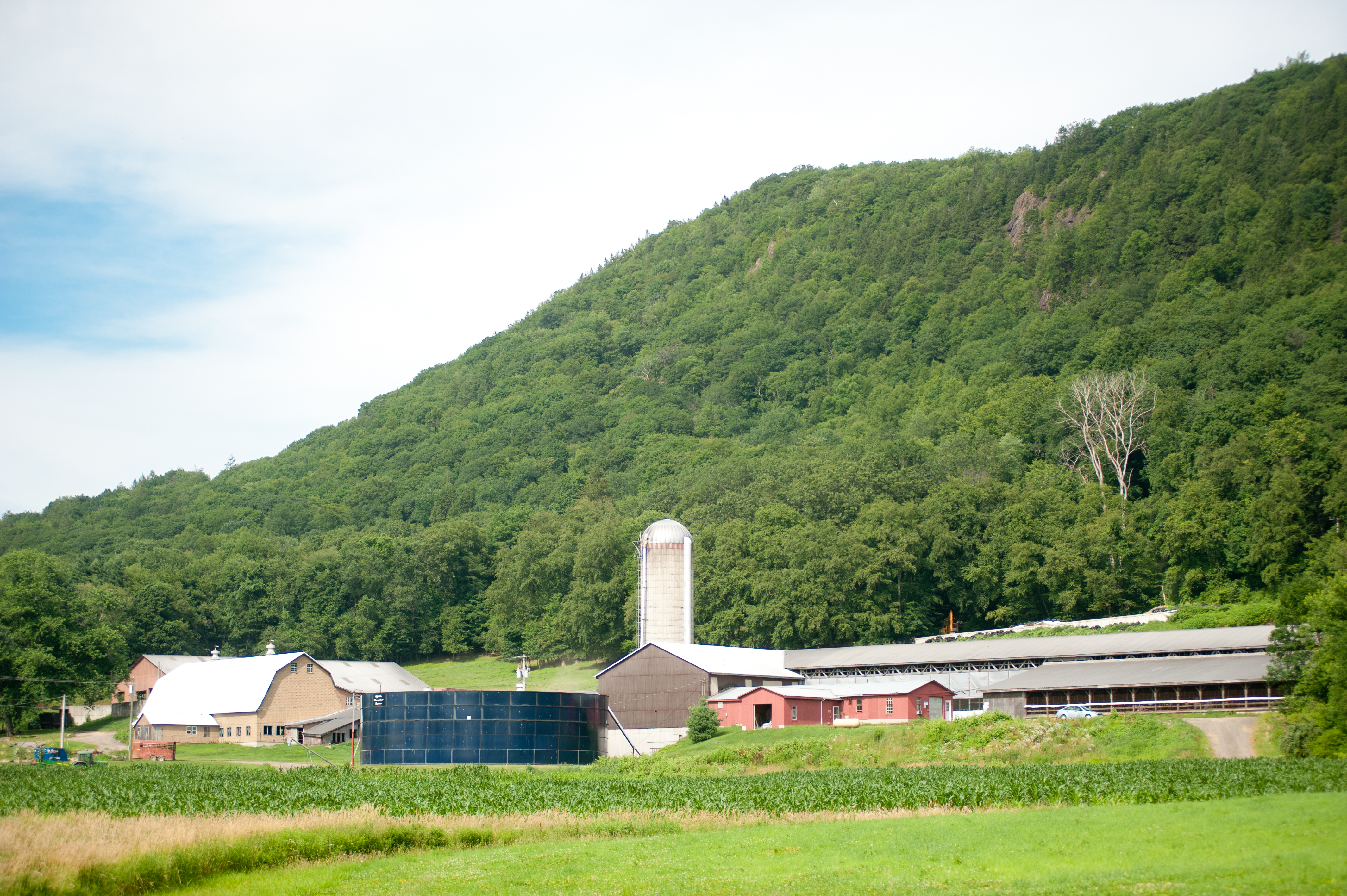For many of New England’s dairy farmers, Earth-friendly practices celebrated once a year on Earth Day are a year-round reality.

Methane digesters providing ‘manure power,’…feeding the herd fiber-rich potato peels from the local potato chip plant…and using GPS tracking to collect data and keep track of crop yield – these are just a few examples of how New England dairy farmers use innovation, technology and common sense to ‘green’ their operations.

A few of our green farm ‘all-stars’ include:
The Gervais Farm – Vermont
In 2012, the farm was part of a pilot project of aerial seeding of cover crops by helicopter on 730 acres of corn land. Cover crops are planted after the growing season to replenish nutrients in the soil and prevent erosion. This past spring, the Gervais Farm purchased a dragline system to inject manure directly into the soil. This helps to decrease the manure odor and makes sure the nutrients stay in the soil to nourish plans. They also utilize a live GPS tracking program in the corn harvester to collect data and keep track of crop yield to help determine the best varieties of corn and where to plant to improve total yield.
Parnassus Farm – New Hampshire
In an effort to prevent milk waste from its barns (yes, the proverbial ‘spilled milk’) from seeping into the local watershed, John Luther installed a milk house waste system at Parnassus Farm. A grass filter strip, designed by the USDA’s Natural Resources Conservation Service and made up of two settling tanks, which separate the waste, and a pump that evenly discharges the newly separated liquid into another tank or manifold (which is painted green and blends into the shrubbery), was also constructed on the farm.
The Jordan Farm – Massachusetts
An anaerobic digester was installed to allow the farm to operate completely off-grid, thanks to a daily ‘diet’ of around 20,000 gallons of liquid food waste and manure waste, which creates a biogas that generates electricity. The digester at Jordan Farm currently produces enough power to run and heat the farming operation as well as power an additional 300 homes.
Freund Farm – Connecticut
The average dairy cow poops about 100 pounds of manure per day, which means the Freund Farm’s invention – CowPots, which are seed-starter pots made out of cow manure – enjoys an almost endless supply of raw material. The farm makes millions of CowPots per season, and ships them to customers across the US and in Canada.
Escobar Farm – Rhode Island
The Escobar family retired the development rights on a large portion of their farm through a perpetual conservation easement, ensuring that the land is protected from future development. The Aquidneck Land Trust placed a conservation easement on 75 acres of the farm that protects it from ever being developed or used for anything other than farmland. This easement also preserves the open space that the farm provides to the community.
Fairvue Farms – Connecticut
The local Lays Potato Chip plant regularly trucks raw potato peels to Fairvue Farms, providing the herd with supplemental feed that offers a great energy source. Several New England dairy farmers benefit from by-products provided by food makers with production byproduct appropriate for cow feed.
Chaput Farm – Vermont
Methane digesters are great tools for dairy farmers. The Chaput Farm has a methane digester that allows them to sell their energy to Vermont’s Sustainably Priced Energy Development program and has a contract with Green Mountain Power’s Cow Power program to sell the renewable energy credits.


